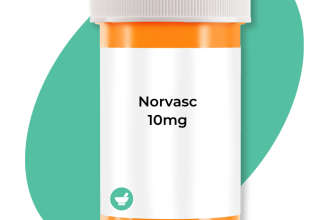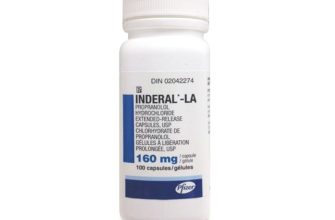To obtain Viagra in Canada, a prescription from a licensed healthcare provider is required. This process ensures that the medication is safe and appropriate for your individual health needs. A visit to your doctor is the first step–discuss any concerns regarding erectile dysfunction and your overall health.
Be prepared for a thorough examination. Your doctor will evaluate your medical history, current medications, and any underlying health issues. They may even suggest lifestyle changes or alternative treatments based on your specific situation. If deemed suitable, your doctor will write a prescription for Viagra or its generic equivalents.
Once you have the prescription, you can purchase Viagra at any licensed pharmacy in Canada, either in-person or through reputable online pharmacies. Always confirm that the online pharmacy is legitimate and requires a prescription for safety. Having this prescription not only provides access to reliable medications but also supports your long-term health and well-being.
Address any questions or concerns you have with your healthcare provider before starting treatment. Open communication ensures you’re informed about potential side effects and interactions with other medications. This proactive approach leads to a personalized plan that effectively meets your needs.
- Viagra Canada Prescription: A Comprehensive Guide
- Understanding Viagra and Its Uses in Canada
- How Viagra Works
- How to Obtain Viagra in Canada
- Eligibility Criteria for Obtaining a Viagra Prescription
- Medical History Assessment
- Lifestyle and Psychological Factors
- Where to Get a Prescription for Viagra in Canada
- Telehealth Options
- Pharmacies and Online Prescriptions
- The Process of Consulting a Healthcare Provider for Viagra
- Cost of Viagra and Prescription Services in Canada
- Prescription Requirements
- Insurance Coverage
- Online Pharmacies: Obtaining Viagra with a Prescription
- Common Side Effects and Precautions When Using Viagra
- Common Side Effects
- Precautions
- Alternatives to Viagra: Other Prescription Options Available in Canada
- Cialis (Tadalafil)
- Levitra (Vardenafil)
Viagra Canada Prescription: A Comprehensive Guide
To obtain Viagra in Canada, a prescription is necessary. This ensures that you receive the appropriate dosage tailored to your specific health needs. Start by consulting with your healthcare provider. During your appointment, discuss your symptoms and any underlying health conditions. This transparency helps your doctor determine if Viagra is suitable for you.
Once your doctor evaluates your situation, they may prescribe Viagra if they think it’s appropriate. A typical starting dose is 50 mg, taken approximately one hour before sexual activity, but adjustments can be made based on your response and tolerance.
Refill options can vary based on your prescription and health plan. Always notify your doctor if you experience any side effects or if your condition does not improve, as they may need to adjust your treatment plan.
Purchasing Viagra online in Canada is an option, but ensure you choose a licensed pharmacy. Check for regulatory compliance by looking for the Canadian Pharmacy Verification Program seal. Avoid websites that do not require a prescription, as they may sell counterfeit products.
Insurance plans often cover Viagra, but coverage details differ. Check with your insurance provider regarding your benefits and any necessary prior authorizations. Some pharmacies may also offer discount programs, which can help reduce costs.
Educating yourself about potential drug interactions is crucial. Inform your doctor about all medications and supplements you are taking to avoid complications. Common interactions may occur with nitrates or certain blood pressure medications.
Maintaining open communication with your healthcare provider throughout your treatment enhances safety and efficacy. Regular follow-ups can ensure your ongoing health and well-being while using Viagra.
Understanding Viagra and Its Uses in Canada
In Canada, Viagra is commonly prescribed to treat erectile dysfunction (ED). This medication contains the active ingredient sildenafil, which increases blood flow to the penis, facilitating erections when stimulated. Many Canadian men turn to Viagra to enhance their sexual health, a choice guided by medical advice following thorough evaluations.
How Viagra Works
Viagra acts by inhibiting an enzyme called phosphodiesterase type 5 (PDE5). This inhibition allows for the accumulation of cyclic guanosine monophosphate (cGMP), a compound that relaxes blood vessels and smooth muscle in the penis. It is essential to note that sexual arousal is still necessary, as Viagra does not trigger an erection autonomously.
How to Obtain Viagra in Canada
To acquire Viagra legally in Canada, a prescription from a healthcare professional is required. Consulting a doctor ensures an accurate diagnosis of ED and allows for discussions about potential side effects or interactions with existing medications. Once prescribed, patients can obtain Viagra from pharmacies or through reputable online platforms that cater to Canadian residents.
Eligibility Criteria for Obtaining a Viagra Prescription
To obtain a Viagra prescription in Canada, specific criteria must be met. Physicians assess both medical and lifestyle factors to determine suitability for treatment. Here are the primary eligibility requirements:
Medical History Assessment
Your healthcare provider will review your medical history, focusing on conditions that may affect erectile function. Common issues include:
| Condition | Impact |
|---|---|
| Diabetes | Can damage blood vessels and nerves, leading to erectile dysfunction. |
| Cardiovascular Disease | May limit safe use of Viagra due to potential heart strain. |
| High Blood Pressure | May necessitate further evaluation before prescribing. |
| Low Testosterone | May indicate the need for hormonal assessment. |
Lifestyle and Psychological Factors
Physicians also consider lifestyle and psychological aspects. Factors include:
- Smoking and alcohol use, which might exacerbate erectile issues.
- Anxiety, depression, or stress that can impact sexual performance.
- Physical fitness level, as being overweight can affect erectile function.
After evaluating these criteria, your doctor will decide if Viagra is an appropriate option. If eligible, a prescription can be issued to help manage erectile dysfunction effectively.
Where to Get a Prescription for Viagra in Canada
To obtain a prescription for Viagra in Canada, the first step involves scheduling an appointment with a licensed healthcare provider. You can visit your family doctor, a urologist, or a sexual health clinic. During the appointment, discuss your symptoms and any underlying health conditions, as these factors will influence your eligibility for the medication.
Telehealth Options
Consider utilizing telehealth services that provide online consultations. Many licensed physicians offer virtual appointments specifically for men’s health issues. After evaluating your condition, they can prescribe Viagra if deemed appropriate. This option is particularly convenient for those who prefer privacy or have mobility challenges.
Pharmacies and Online Prescriptions
Once you have a prescription, you can fill it at any local pharmacy. Some Canadian pharmacies also offer online services. Ensure that the pharmacy is reputable and licensed to operate in Canada. Prescription services found online assist in ensuring the medication is safe and meets your healthcare needs.
The Process of Consulting a Healthcare Provider for Viagra
Begin your consultation by scheduling an appointment with a licensed healthcare provider. This could be your primary care physician or a specialist, such as a urologist. During the visit, communicate openly about your symptoms, medical history, and any medications you currently take. Providing complete information allows the healthcare provider to assess your situation accurately.
Expect the healthcare provider to ask detailed questions about your erectile dysfunction. They may inquire about the duration of the issue, frequency of occurrences, and any psychological factors that could contribute. Be honest in your responses, as this will help your provider determine the best course of treatment.
Once your condition is evaluated, the provider may conduct physical examinations and recommend blood tests to check for underlying health issues like diabetes or cardiovascular diseases. These tests assist in ruling out any conditions that could affect treatment options.
If deemed appropriate, your healthcare provider will discuss Viagra as a potential treatment. They’ll explain how the medication works, appropriate dosages, and possible side effects. Don’t hesitate to ask questions about the medication, including any concerns you might have.
Before leaving, ensure you understand the prescription process, including how to obtain Viagra in Canada. Ask about the possibility of refills and any follow-up appointments that may be necessary to monitor your response to the treatment.
Lastly, take notes during your consultation. Write down any instructions or recommendations provided. This will help you feel confident moving forward with your treatment plan.
Cost of Viagra and Prescription Services in Canada
The average cost of Viagra in Canada can range from CAD 10 to CAD 25 per pill, depending on the pharmacy and dosage. Buying in bulk can lead to savings, as many pharmacies offer discounts for purchasing larger quantities. Online pharmacies may provide competitive pricing, but ensure they are licensed and verified to avoid counterfeit products.
Prescription Requirements
A prescription is mandatory for Viagra in Canada. It’s crucial to consult with a healthcare professional to determine if this medication is suitable for you. The initial consultation fee with a doctor may vary between CAD 50 to CAD 150, based on location and provider. Some telemedicine platforms offer online consultations, which can be more affordable and convenient. Utilizing these services can streamline the process of obtaining a prescription.
Insurance Coverage
Health insurance plans often cover Viagra partially or fully, depending on the provider and the individual’s policy. Check with your insurance company to understand your coverage limits and reimbursement procedures. If not covered, consider discussing alternative treatments or generic options with your healthcare provider for cost-effective solutions.
Online Pharmacies: Obtaining Viagra with a Prescription
To acquire Viagra legally from online pharmacies in Canada, a valid prescription is required. Here’s a clear process to follow:
- Consult a Healthcare Professional: Schedule a consultation with a doctor. This can be done in person or through telehealth services. Discuss your health history and any concerns regarding erectile dysfunction.
- Receive a Prescription: If deemed appropriate, the doctor will issue a prescription for Viagra. Make sure to obtain all necessary details from your healthcare provider to share with the pharmacy.
- Choose a Reputable Online Pharmacy: Select an online pharmacy that is legitimate and requires a prescription. Look for certifications such as the Canadian International Pharmacy Association (CIPA) seal to ensure safety.
- Place Your Order: Fill out the required information on the pharmacy’s website. Upload your prescription or provide the pharmacy with your doctor’s contact information, so they can verify it.
- Payment and Delivery: After verification, complete the payment process. Choose a delivery option that suits you. Most pharmacies offer discreet shipping for privacy.
Regularly check the pharmacy’s online presence, reviews, and ratings to ensure compliance and customer satisfaction. Avoid any website offering Viagra without a prescription, as it may not be safe or legal.
Retain your prescription for future orders, as many online pharmacies maintain your records to facilitate repeat purchases. Always communicate with your healthcare provider about any side effects or concerns experienced after starting the medication.
Common Side Effects and Precautions When Using Viagra
Consult your healthcare provider about potential side effects before using Viagra.
Common Side Effects
- Headaches
- Flushing (redness or warmth in the face, neck, or chest)
- Indigestion or upset stomach
- Stuffed nose or nasal congestion
- Dizziness
- Changes in vision, such as blurred vision or a blue tint
- Back pain
Most side effects are mild and tend to resolve quickly. However, inform your doctor if they persist or worsen.
Precautions
- Discuss your medical history with your doctor, especially regarding heart problems, liver or kidney conditions, and blood disorders.
- Avoid using Viagra if you are taking nitrates, as it can cause a dangerous drop in blood pressure.
- Limit alcohol consumption, as it can increase the likelihood of side effects.
- Be cautious if you have a history of priapism (prolonged erection), as Viagra may exacerbate this condition.
- If experiencing sudden vision loss or hearing changes, seek immediate medical attention.
Follow your healthcare provider’s instructions closely to ensure safe usage of Viagra and minimize risks.
Alternatives to Viagra: Other Prescription Options Available in Canada
If you seek alternatives to Viagra for erectile dysfunction, several effective prescription options exist in Canada. These medications work in different ways and may suit your needs better than Viagra.
Cialis (Tadalafil)
Cialis offers a longer duration of action, lasting up to 36 hours. This allows for more spontaneity in intimate situations. It’s beneficial to take it daily in a smaller dose for ongoing treatment, providing a consistent opportunity for sexual activity without planning. Consult your healthcare provider to determine the best dosing regimen for you.
Levitra (Vardenafil)
Levitra works in a manner similar to Viagra but may be more effective for some men. It starts acting within 25 to 60 minutes and remains effective for up to 5 hours. Discuss with your doctor if Levitra aligns better with your lifestyle and health concerns. Certain medical conditions or medications might influence the choice of this alternative.
Each of these options comes with potential side effects and contraindications. Speak openly with your healthcare provider about your needs and medical history to identify the most suitable treatment for you.










